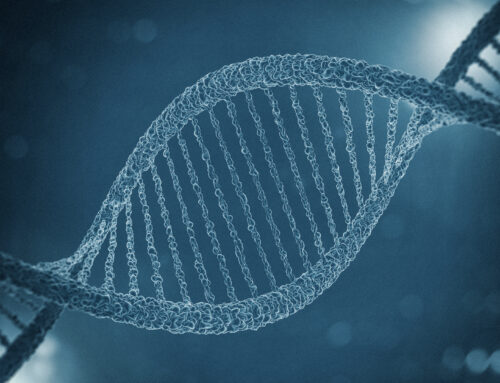 By Carol Guzman
By Carol Guzman
Scientists at the Broad Institute and Harvard University have created a tool that catalogs more than 6 million spots in DNA to create an aggregated “risk score” for 5 common diseases. The New York Times reported last month that patients may soon be able to upload their genetic data to the new program to calculate their inherited risk for disease.
Will this new algorithm help patients make better decisions regarding their health?
First, let’s briefly explore how this tool works. In biology class, we were taught that one distinct gene is responsible for your eye color and another for your height. Think Gregor Mendel’s pea plants. These monogenic mutations are essential for carrier screening and tracking family history.
However, observable characteristics and many diseases occur through polygenic inheritance – involving many genes. Each of the small changes alone may have a very small impact. Thus, looking at each of the 6 million genetic markers individually may not provide much insight, but when evaluated together, doctors may be able to better calculate an individual’s inherited risk of heart disease, breast cancer, Type 2 diabetes, chronic inflammatory bowel disease and atrial fibrillation.
The NYT report describes the algorithm’s ability to aggregate the risk of all 6 million markers into a “risk score.” As the NYT report describes, a patient’s assigned “risk score” may help doctors advise them on preventative care. While this holds a lot of promise, it also raises some concerns:
- As genetic tests, such as this one, become more common in primary care practice, many more genetic counselors will be needed in general practitioners’ practices – As more genetic tests become available the need for genetic counselors continues to grow. The National Society of Genetic Counselors states there are currently 4,600 certified genetic counselors. That is one genetic counselor for every 78,000 Americans. (Read more: Can Genetic Counselors Keep Up with 23andMe?)
- Your “risk score” is not an absolute determinant of your health, personal lifestyle choices have an affect – You’ve heard of nature versus nurture. If an individual with a high “risk score” acts on preventative care advice, they may decrease their risk of having the genetic disease. The opposite can be true of someone with a low “risk score”. (Read more: How do your genes and the environment interact?)
- There is a lack of diversity in genetic research, which means that this research and tool may be more relevant for some people than others – a problem for healthcare equality – Based on a study done by Nature, African and Latin American ancestry, Hispanic people and native or indigenous peoples represent less than 4% of genome-wide associate studies. (Read more: Genomics is failing on Diversity)
- Taking advantage of this genetic tool could lead patients to risking their access to long-term care – impacting the insurance market place – As more high-risk individuals seek long-term care insurance and lower-risk individuals opt out of such policies, insurers will increase rates for policyholders, making the insurance marketplace unsustainable.
While we can debate pros and cons of a new tool, one thing we can all probably agree on? This is the way of the future.
If you have questions about your genetic health, reach out to Sarnoff Center or your doctor.


